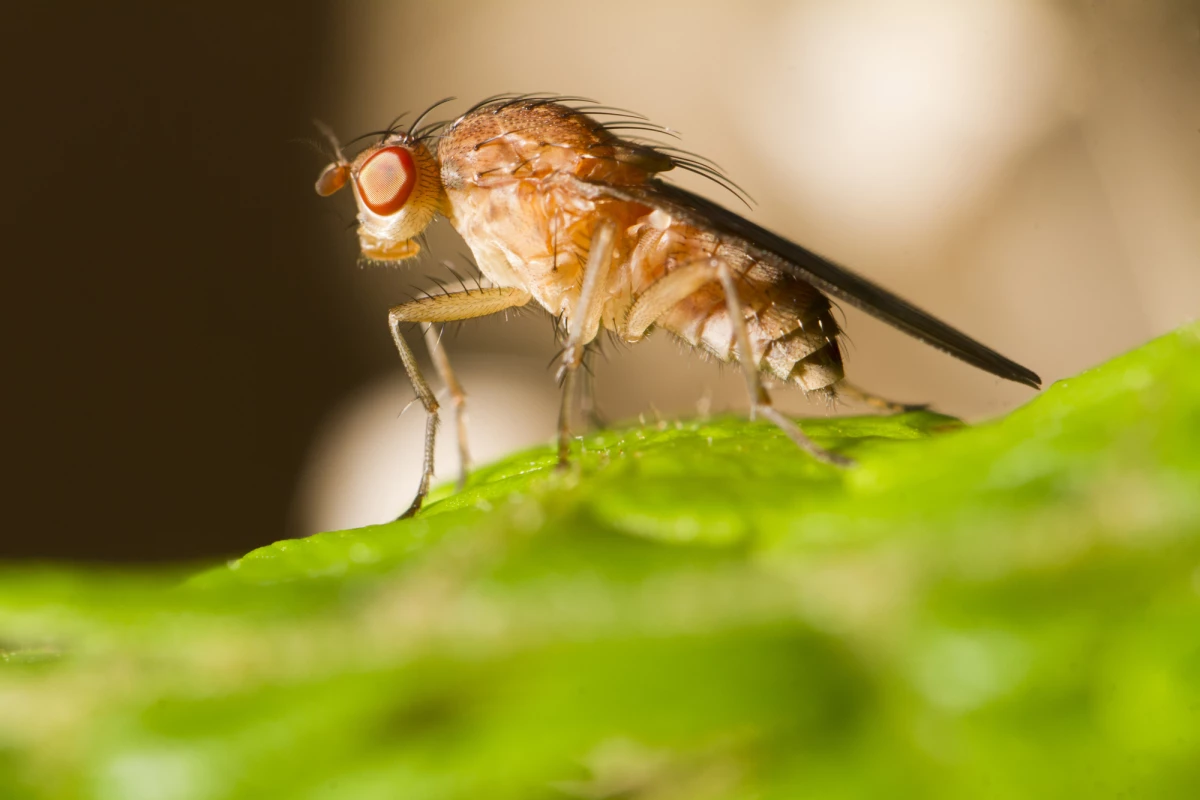Long-term memories associated with shocking events can be profoundly damaging to sufferers of post-traumatic stress disorder, but could there be a way for science to intervene and lessen the psychological harm? Researchers at Tokyo Metropolitan University have made an exciting discovery in this area, finding that they could effectively erase memories of a traumatic event in fruit flies by keeping them in the dark for two days.
The emotional impact of traumatic memories is so devastating that medical researchers are coming at this problem from a number of angles. This could be either by suppressing them, removing strong emotional attachments, or even "editing" them. A couple of studies last year unearthed some promising possibilities, finding one drug that induces amnesia may help edit out negative associations with past experiences, along with how the same result might be achieved through a form of light therapy called optogenetics.
The new research out of Tokyo Metropolitan University also focuses on light, or a lack thereof, and how it can help erase long-term memories of traumatic events in fruit flies. Fruit flies are often used as a model for studying the human brain due to the genetic similarities, and they've led to significant discoveries in everything from Parkinson's treatment to how we might extend our lifespan.
Inspired by previous research looking at the role light can play in things like circadian rhythms, mood and cognition, the team set out to explore whether long-term memory might be influenced in similar ways. The scientists began by inducing trauma in the fruit flies through what is known as the courtship conditioning paradigm.
This refers to a phenomenon where female fruit flies that have already mated reject a male fruit fly's advances with such vigor that it causes the male great stress. Once this experience forms as a long-term memory, the male fruit fly is so affected that they fail to successfully mate, even when unmated female fruit flies around them are freely available.
As part of their experiments, the team isolated male flies in the constant darkness for two days, along with another group of flies who experienced a typical day-night cycle. They found that those kept in the dark demonstrated no reluctance to mate, while the other group of flies exhibited normal behavior just as expected.

Through further examination of the fruit fly brains, the team found that a protein known as Pigment-dispersing factor (Pdf), which is know to be expressed following light exposure, regulates the transcription of a protein called the cAMP response element-binding protein (CREB). CREB resides in the mushroom bodies of the fly brain, a region associated with learning and memory. As such, the team believes it has found a molecular mechanism through which environmental light can impact the retention of long-term memories.
While the brains of a fruit fly and the types of trauma they experience are different to those of humans, the team hopes with further work this discovery could pave the way for new treatments for trauma victims.
The research was published in The Journal of Neuroscience.
Source: Tokyo Metropolitan University via EurekAlert




